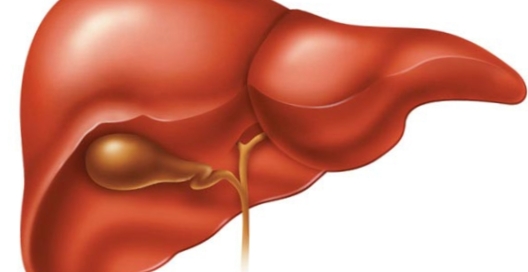The smell of ammonia in the urine in women. Why it happens and how to treat
Fresh urine has a specific and unique smell, but depending on the health of the girls and their nutrition, it may change. In a healthy person, urine has the color of amber, it is relatively bright and transparent.
The lack of odor and pale color are due to drinking enough water and emptying the bladder at regular intervals.
Under normal circumstances, a sterile fluid of water-soluble chemicals is excreted from the bladder.
Thus, the body gets rid of many waste products. In some cases, urinary fluid causes an unpleasant odor.
If the urine smells like ammonia in women, this is unmistakable evidence of a dangerous concentration of ammonium phosphate, which can be a symptom of serious diseases.
In this case, it is necessary to conduct studies of the excreted fluid in the laboratory in order to determine the underlying cause of such pathological changes.
Symptoms
The initial sign of change is a strong ammonia stink. Other symptoms may be clouding of the contents of the bladder or the appearance of bloody discharge when urinating.
Under some circumstances, a fetid odor is associated with irritation, burning, itching when urinating.
The smell may not come from urine, but from the vagina, more in the video:
The reasons
1. Dehydration.
Urine itself does not smell at all unless it is concentrated. It is dehydration that often causes stink. When the body receives a minimal amount of water, moisture in the urine decreases while ammonia and other chemicals increase, resulting in a high concentration, changing its odor and color. This problem can be easily solved by re-watering.
2.

Hydrogen nitride is nothing but a nitrogenous compound and hence a diet rich in protein can cause ammonia smell in urine in women. Eggs, meat, cheese, and other foods rich in nitrogen from amino acids are converted to urea and then excreted in urine. Some vegetables, such as asparagus, radishes, garlic, can also cause a strong unpleasant odor.
3. Urinary tract infections.
UTIs are one of the most common causes of odor in women. The anatomy of the female body is more susceptible to such conditions. In the weaker sex, the urethra is close enough to the anus. All of these factors increase the risk of developing urinary tract infections.
Menopause is the final cessation of the menstrual cycle in women.  which is marked by a significant drop in the level of the hormone estrogen. This condition becomes a susceptibility factor to urinary tract infections due to the loss of protective vaginal flora, which sometimes causes urine to smell ammonia.
which is marked by a significant drop in the level of the hormone estrogen. This condition becomes a susceptibility factor to urinary tract infections due to the loss of protective vaginal flora, which sometimes causes urine to smell ammonia.
5. Pregnancy.
Like menopause, pregnancy can also increase your chance of getting UTIs, especially kidney infections. Hormones cause changes in the urinary tract, for example, progesterone causes the ureter to narrow, which slows down the passage of fluid through it. On the other hand, the growing fetus compresses the organs of the urinary system, preventing complete emptying of the bladder.
6. Diseases of the kidneys.
The kidneys act as natural filters, removing excess waste and water from the bloodstream. Consequently, waste products such as urea and hydrogen nitride are eliminated from the body. If the functioning of the organ is impaired, the filtration process will be limited, which will sometimes lead to foul-smelling urine.
7. Diseases of the liver. 
8. Diabetic ketoacidosis.
Diabetes is characterized by insufficient insulin production, or the inability of cells to respond to a hormone produced by the pancreas. In both cases, the cells of the body cannot absorb glucose and then they begin to use fat as a source of alternative fuel. This process leaves toxic compounds called ketones that accumulate in the organs and are then excreted in the urine. They are sometimes the reason for the appearance of an unpleasant aroma of urine.
9. Vaginitis. 
Girls who smell an unpleasant stench may actually be suffering from vaginitis, a disease that causes swelling of the vagina. It is usually the result of a bacterial or fungal infection. Symptoms of the disease, in addition to fetid urine, are vaginal itching, painful urination and pain in the genital area during sex.
10. Other possible causes.
In addition to the above conditions, fetid urine sometimes occurs with certain metabolic disorders, as well as sexually transmitted diseases. The habit of controlling the urge to urinate and the consumption of certain drugs and supplements, such as vitamin B6, can also change the chemical structure of the fluid.
Treatment options
To know how to treat when women's urine smells like ammonia, it is necessary to conduct a thorough medical research to identify the root cause of its occurrence.
In the case where fetid urine is not caused by diet or the influence of certain medications, a consultation with a doctor will allow you to find out the true factors of occurrence.
This will help ensure early diagnosis and timely treatment of the disease that caused the unpleasant stench.

- Follow your diet. With increased consumption of protein foods, you need to reconsider your diet. After a change in diet, the stench in the urine should go away after a few days.
- While taking certain medications or supplements, you should consult your doctor to learn about the effects of taking them. In such cases, you can simply increase the amount of water consumed.
- If the presence of hydrogen nitride is associated with medical problems, then its disappearance will depend on the treatment of the underlying disease.
The unpleasant smell of ammonia in the urine is often temporary and always indicates a specific cause. Therefore, under any circumstances, you should consult a doctor to rule out serious health problems.




